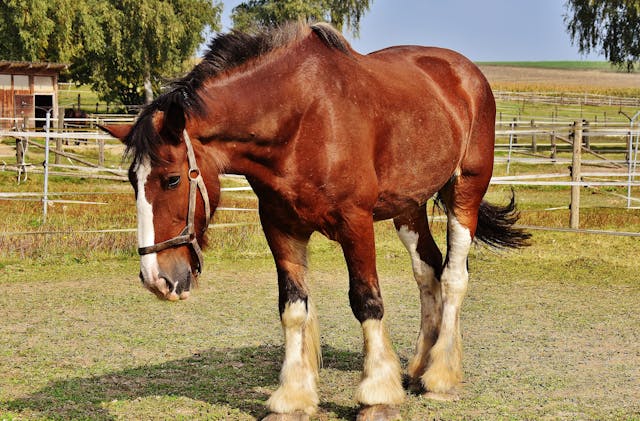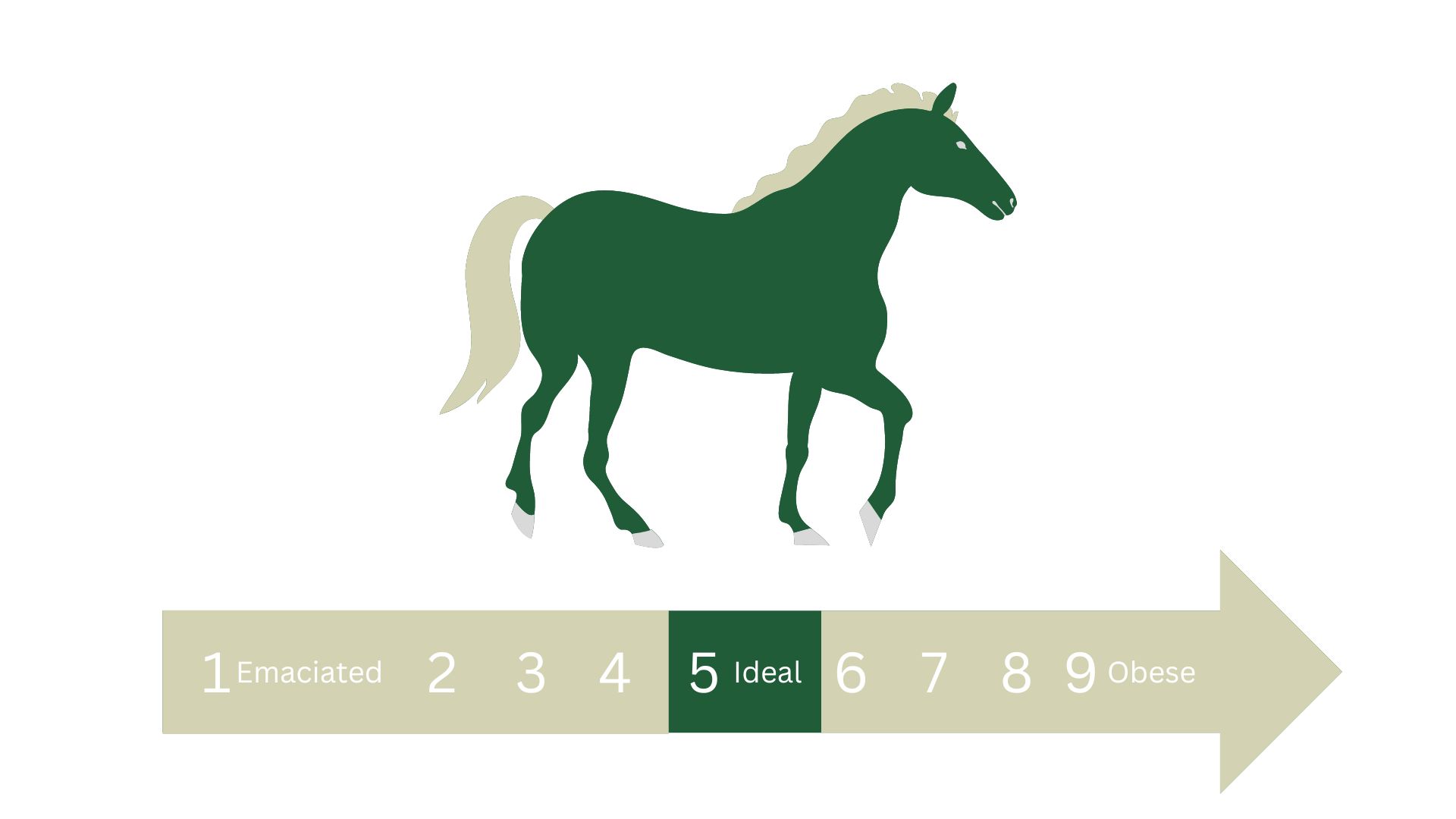Maintaining a Healthy Horse Weight

Maintaining a healthy horse weight is crucial for the overall well-being and performance of your horse. Whether your horse is a light pony or a heavy draught, managing their weight effectively can prevent a range of health issues and ensure they stay fit and active. In this guide, we’ll explore the factors that influence horse weight, how to determine the healthy weight of your horse, and what you can do to manage it effectively.
Understanding horse weight
The weight of the average horse can vary significantly depending on its breed, age, and workload. For instance, a light pony can typically weigh between 200 and 350 kilograms, while a larger, fully-grown, horse can weigh upwards of 900 kilograms. Understanding the specific needs of your horse is essential in maintaining a healthy weight.
A healthy horse weight isn't just about numbers on a scale. It’s about the balance between your horse's body condition and the demands placed on them. Regularly monitoring your horse’s weight is an important part of their care routine. This involves not only weighing them but also assessing their body condition score (BCS), which gives you an insight into their overall health.
The dangers of obesity in horses
Obesity in horses is a growing concern and can lead to a host of health problems. Overweight horses are more prone to developing laminitis, a painful and potentially life-threatening condition that affects the hooves. They are also at higher risk of metabolic disorders such as insulin resistance, which can complicate their health further.
One of the challenges in managing horses' weight is that they can easily gain weight if their diet and exercise aren't balanced. Horses have evolved to graze for up to 18 hours a day on low-calorie forage, but modern feeding practices often involve concentrated feeds that are rich in calories, which can contribute to weight gain if not managed carefully.
How to determine healthy horse weight
So, how do you determine the healthy weight for your horse? There are a few methods you can use:
1. Weighing on a scale
The most accurate way to measure a horse’s weight is by using a weighbridge. This gives you an exact figure and is especially useful for monitoring changes over time.
2. Weight tapes
Weight tapes are an accessible tool that estimates your horse's weight based on their girth. While not as precise as a scale, they can be useful for regular checks.
3. Body condition scoring (BCS)
BCS is a hands-on method where you assess the amount of fat covering certain areas of the horse's body, such as the ribs, neck, and rump. Scores range from 1 (emaciated) to 9 (obese), with a score of around 5 to 6 considered ideal for most horses.

Managing Your Horse’s Weight
Managing your horse's weight involves balancing their diet with the right amount of exercise. Here are some tips to help you keep your horse at a healthy weight:
1. Adjusting the diet
- Forage First: Horses thrive on forage like grass and hay. Ensure that the majority of your horse’s diet is made up of good-quality forage, which provides the necessary fibre while helping to prevent overeating.
- Limit High-Calorie Feeds: If your horse is gaining too much weight, consider reducing or eliminating high-calorie concentrates. Instead, look for low-calorie options that still provide essential nutrients.
- Use Balancers: Balancers are a great way to provide essential vitamins and minerals without adding extra calories. This is particularly useful for horses on restricted diets.
- Monitor Portion Sizes: Overfeeding, even with forage, can contribute to weight gain. Ensure you are providing the correct amount for your horse’s size and activity level.
2. Increase Exercise:
- Regular Exercise: Just like humans, horses need regular exercise to burn calories and maintain muscle tone. Aim for a consistent exercise routine that matches your horse’s fitness level.
- Vary the Workload: Incorporate different types of exercise, such as schooling, hacking, and lunging, to keep your horse engaged and working different muscle groups.
- Monitor Fitness Progress: As your horse becomes fitter, you may need to increase the intensity or duration of exercise to maintain their weight.
3. Regular Check-ups:
- Veterinary Guidance: Regular check-ups with your vet can help identify any underlying health issues that could be affecting your horse’s weight.
- Nutritionist Consultation: A consultation with a nutritionist can help tailor a diet plan specific to your horse’s needs, especially if they are prone to weight gain or loss.
Conclusion
Maintaining a healthy horse weight is an ongoing process that requires regular monitoring, a balanced diet, and consistent exercise. Understanding the factors that affect horses' weight and taking proactive steps can help you manage your horse’s health effectively.
At Equi-Box, we are committed to providing you with the best horse feed options to help maintain your horse’s optimal weight. Whether you’re looking to manage weight gain, prevent obesity, or simply keep your horse healthy and active, our range of high-quality feeds and supplements can help you achieve those goals.
Remember, every horse is unique, and their diet and exercise plan should reflect that. By taking a thoughtful and informed approach, you can ensure your horse stays healthy, happy, and in peak condition.
Posted on: 03/09/2024





